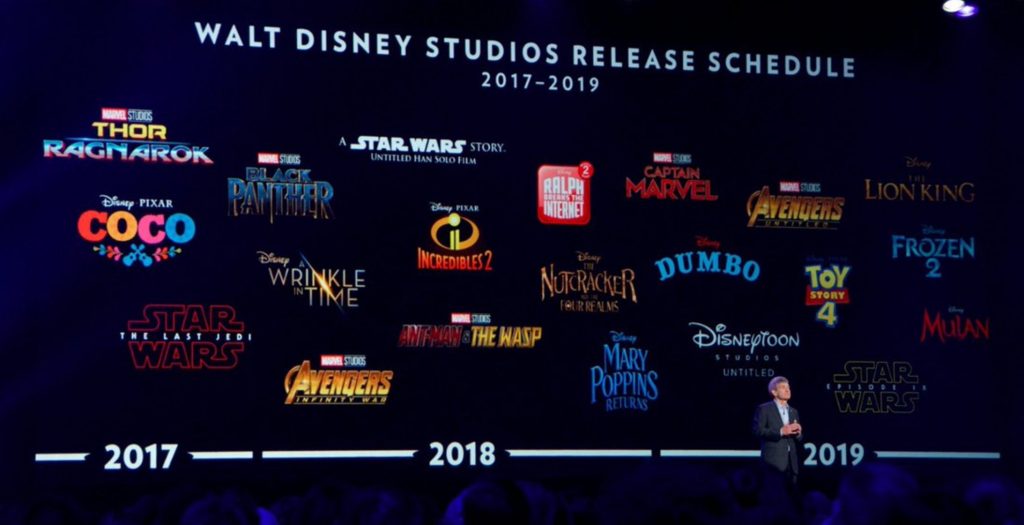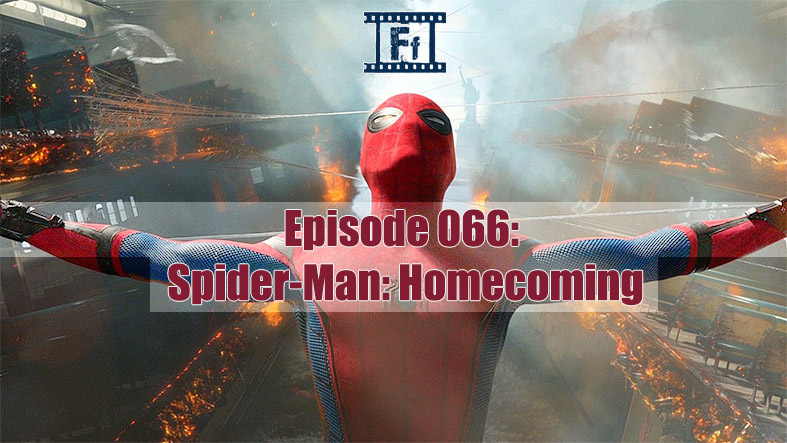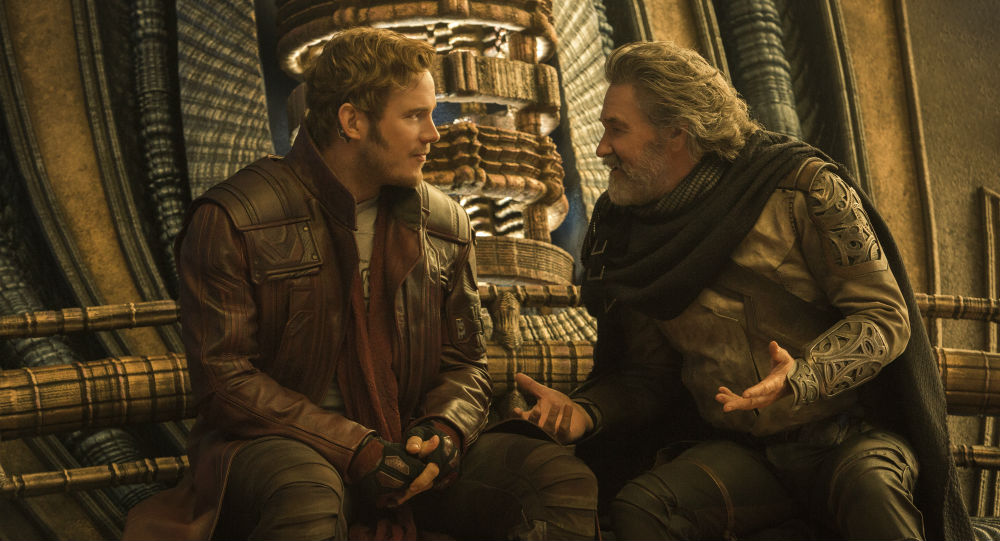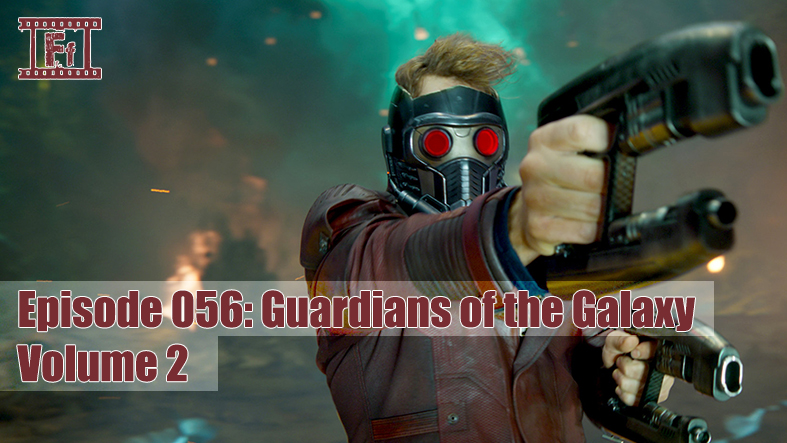For weeks, the Disney/Marvel marketing machine has been dropping 30-second nuggets of hype on our television screens, promising copious amounts of adorable Baby Groot shenanigans and Drax the Destroyer punch lines. And while Guardians of the Galaxy Vol. 2 makes good on those promises, this is a decidedly different experience from Volume 1, mostly in that there is a lot less galaxy guarding and a lot more reconciling with daddy issues. It’s a cinematic equivalent of spending two hours on a therapist’s couch, with a few action sequences thrown in to appease any of the natives who might be getting restless.
Spending time addressing personal relationships between characters shouldn’t surprise anyone up to date with Marvel’s film library. Marvel historically uses sequels as association points for their future cinematic plans. In order for the Guardians to move forward, it was necessary to take a step back to fine tune some character arcs and throw a few lingering contrivances to the curb. Despite somewhat fidgety pacing and Director James Gunn’s compulsion to wring many of his gags of every last drop of usefulness, Guardians Vol. 2 mostly succeeds as a fun, humorous addition to the Marvel pantheon, and a workable catalyst for the summer 2017 onslaught of blockbuster entertainment.
When Guardians Vol. 1 premiered in 2014, only ardent Marvel comic book fans were in the loop on this collection of characters, none of whom looked like any of the Avengers we had become accustomed to seeing on screen. It was considered a big risk for Marvel Studios- stepping out of their cinematic comfort zone- playing with toys from the back of the closet- hoping audiences would embrace these second tier creations. And it worked. But whenever something works, it undoubtably comes with an added burden to carry forward…. expectations.
So what is Gunn & Co. to do, now faced with the unenviable task of taking this ragtag cast of B-list characters to the next level? Fanboys are a brutal lot. Just look at the backlash lobbied against nerd demigod Joss Whedon when his vision for Avengers: Age of Ultron didn’t meet with the ridiculous standard set forth from within grandma’s basements across the globe. Gunn could have taken the easy route. He had his golden ticket to fall back on- Chris Pratt, who’s boyish charm and charisma elevate even the most outlandish of flawed premises. He could have served up another helping of intergalactic cheese, ending with a typical, “and I’d have gotten away with it if it weren’t for you meddling kids,” mustache twirling villain meets a predicable and mildly anticlimactic demise. Make no mistake, all of this exists here, but Gunn also layers in some emotional character beats that add a depth and complexity to these characters both as individuals and as a team.
Guardians Vol. 2 lays a lot of its chips down on dealing with family conflict, the need for acceptance, and the power of redemption. In Peter Quill (Pratt), questions about his past are answered, not necessarily to his liking, but in a way that allows him to determine the type of person he ultimately chooses to become. His curiosity about his father has always consumed him, yet what keeps him whole is the memory of his mother and the Walkman she gifted him. She was the one that was always there for him, until she wasn’t. Not even an all powerful, scene chewing Kurt Russell wielding promises of immortality is going to stand between that.
For Gamora (Zoe Saldana) and Nebula (Karen Gillan), sibling rivalry- a construct of a father with ulterior motives- comes to a violent head, where festering animosities collide in a burst of emotion and enlightenment. Gillan’s tortured, angry Nebula is a stand out, and the catharsis she and her sister work toward is earned in every respect.
For Rocket (Bradley Cooper), the facade of being a wise talking douche-bag is challenged. What he discovers about himself is a true need for others- a compulsion to be a part of a family- and his propensity to distance himself from others is a wall of his own construct to shield himself from having to admit as such.
Refreshingly, much of the emotional weight of the film falls on the dark blue shoulders of Yondu (Michael Rooker). He is the Severus Snape of the series, altogether loathed and loved within the course of an hour. His is the redemptive spirit that holds court over the film, ultimately rebinding the family unit that has been tested.
Don’t be concerned with all of the Freudian psychoanalysis however, for when these themes start to weigh the film down, you can count on another influx of Baby Groot (Vin Diesel) antics or a bout of infectious Drax (Dave Bautista) belly laughing to lighten the mood. Gunn is fully aware that a need to see spaceship battles and explosions are requisites he cannot ignore completely, even if his dual commitment to developing his characters and his need to sate his audience’s desire for action sometimes struggle to play nicely together.
Visually, Guardians Vol. 2 sticks with the same motif that worked in the first film, using a color palate and set designs that feel like a space opera created by Dr. Seuss. The battle scenes are ambitious, but sometimes feel a bit too busy and suffer as a result from a cacophony of sight and sound that is impossible to decipher. The soundtrack is becoming an important “character” in the series as well, and again regales us with an eclectic mix of 80’s nostalgia, eagerly ripped from the stereo of our parent’s sedan or from the “middle-aged white persons” list in karaoke bars. Seriously, you know you’re cranking “Brandy” when the opportunity presents itself.
I suppose it’s apropos that Guardians Vol. 2 would be the film that topples The Fate of the Furious from the domestic box office perch. A series that roots itself in family, supplanted by another. Guardians and Furious seem to be kindred spirits, both harboring in over the top action yet allowing for room to breathe and grow. Guardians has positioned itself to move nicely forward, having rid itself of much of the personal baggage leftover from Vol. 1.
Yet, there will be a bit of backlash against Guardians. It’s standard for these types of films. I don’t like to throw around the term critic proof, as films like this are usually categorized. Everything should be considered for subjective analysis, even if it will rake in a mountain of cash regardless. Don’t tell me I need to lighten up, or that it’s a “popcorn movie.” Let’s not fool ourselves into thinking any blockbuster film shouldn’t be held to the highest standard. The minute we stop caring about characters and how they fit into ongoing stories is the minute we start enabling studios to churn out cinematic chum that blind masses of filmgoers will swarm towards in any regard. Do you really think the majority of people flocking to the theaters for Marvel movies are looking for something with depth? Ask yourself…how many people got up after the screen went blank, oblivious to the five post credit sequences still to come? How is this still a thing with Marvel movie audiences? Marvel doesn’t have to try anymore. They could easily cater to the lowest denominator, and yet, they don’t. They still care about the fans, unlike that Michael Bay franchise that somehow continues to gorge itself on the shekels of middle class Americans. They still see a need for character development and conflict. I’m not saying don’t criticize, just be careful what you’re criticizing. Be upset about the way that Guardians handled Quill’s daddy issues if you need to, but don’t be upset that they brought them up and fleshed them out. Know the difference between criticizing and whining. We should always want the best effort, and I think for the most part Marvel has delivered. Guardians of the Galaxy Vol. 2 being no exception. We are Groot.
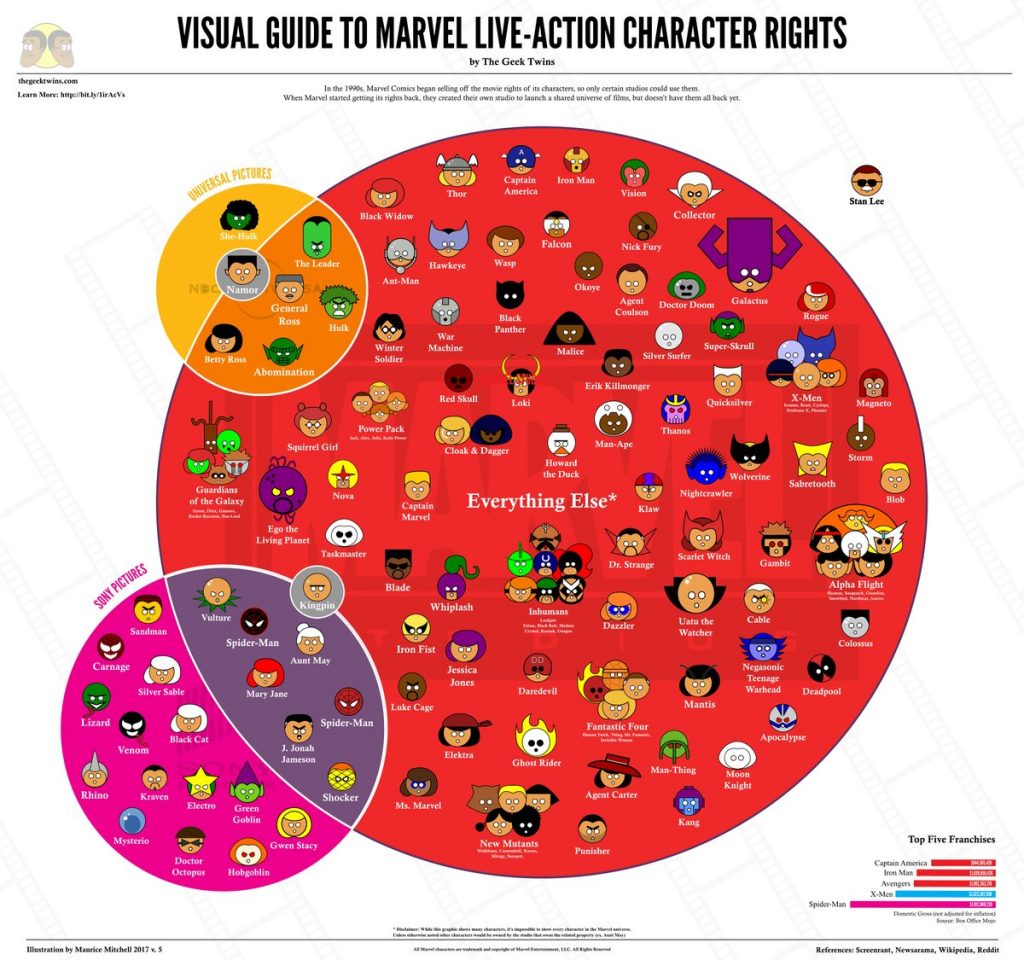
 DON SHANAHAN is a Chicago-based film critic writing on his website Every Movie Has a Lesson. As an elementary educator by day, Don writes his movie reviews with life lessons in mind, from the serious to the farcical. He is a proud member and one of the founders of the Chicago Independent Film Critics Circle. As a contributor here on Feelin’ Film, he’s going to expand those lessons to current movie news and trends. Find “Every Movie Has a Lesson” on Facebook, Twitter, Medium, and Creators Media.
DON SHANAHAN is a Chicago-based film critic writing on his website Every Movie Has a Lesson. As an elementary educator by day, Don writes his movie reviews with life lessons in mind, from the serious to the farcical. He is a proud member and one of the founders of the Chicago Independent Film Critics Circle. As a contributor here on Feelin’ Film, he’s going to expand those lessons to current movie news and trends. Find “Every Movie Has a Lesson” on Facebook, Twitter, Medium, and Creators Media.

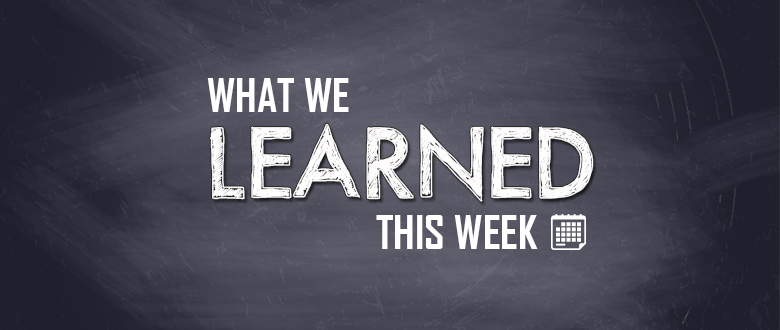
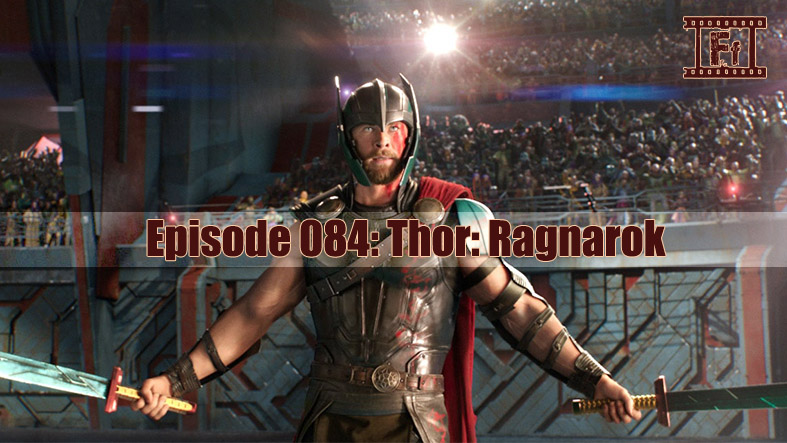


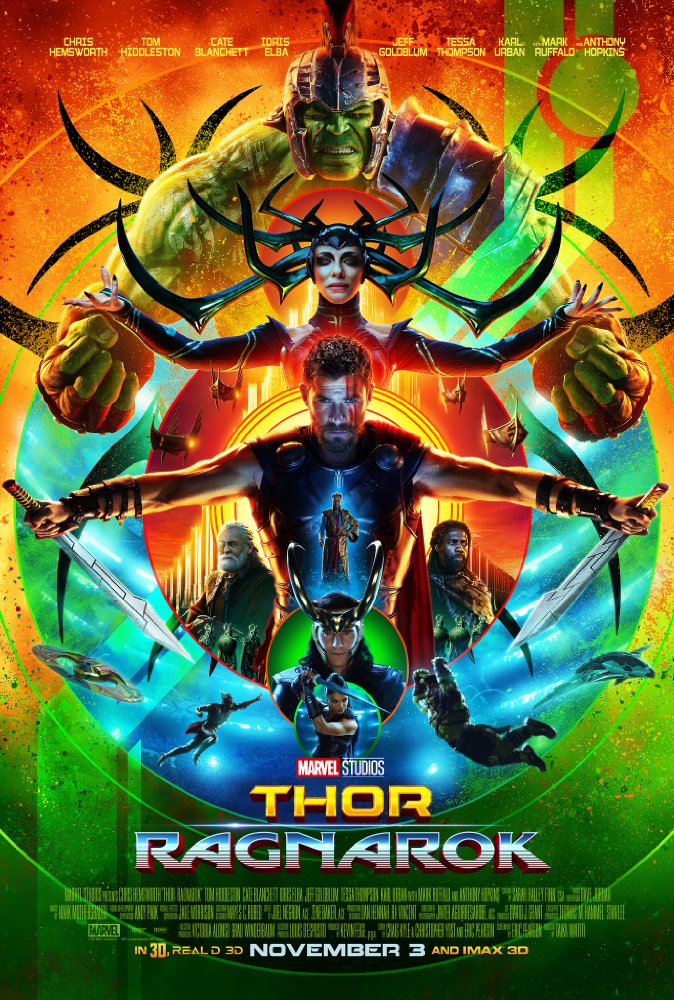
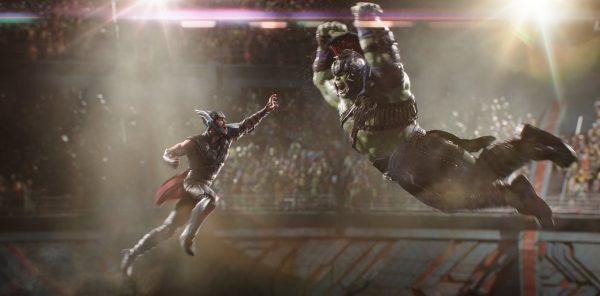


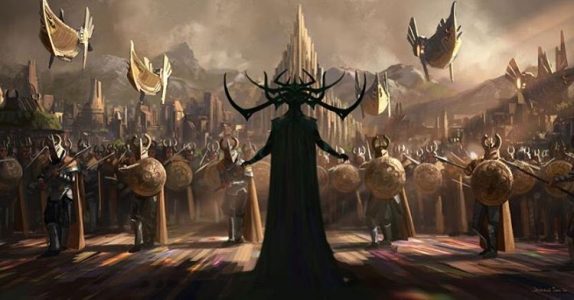
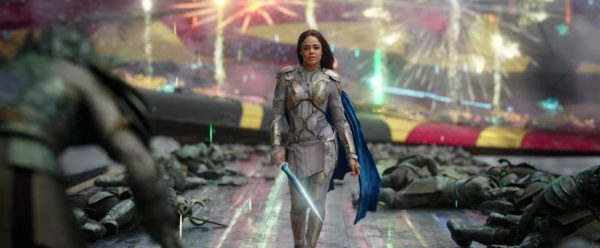
 Aaron White is a Seattle-based film critic and co-creator/co-host of the Feelin’ Film Podcast. He is also a member of the
Aaron White is a Seattle-based film critic and co-creator/co-host of the Feelin’ Film Podcast. He is also a member of the 
